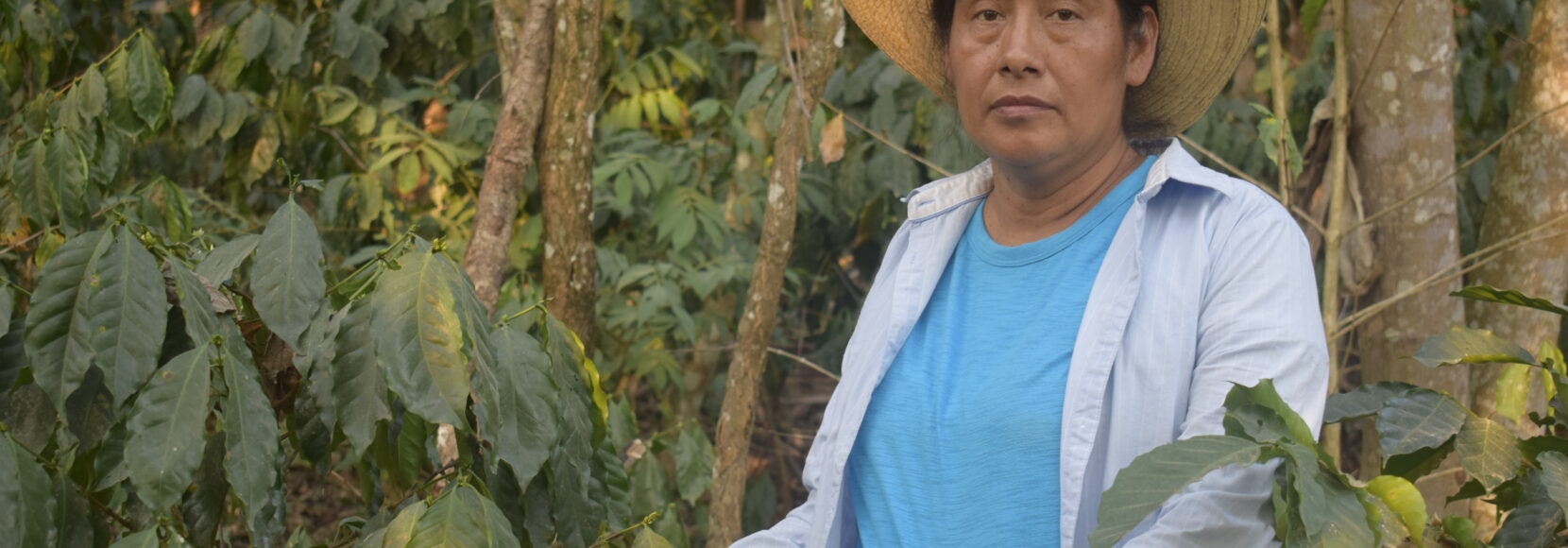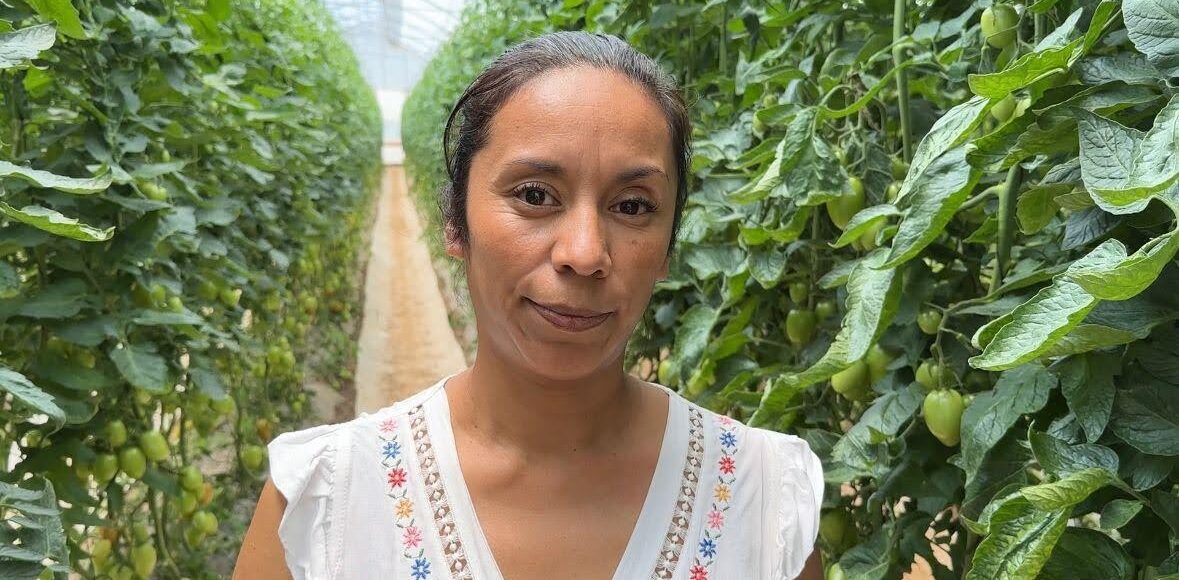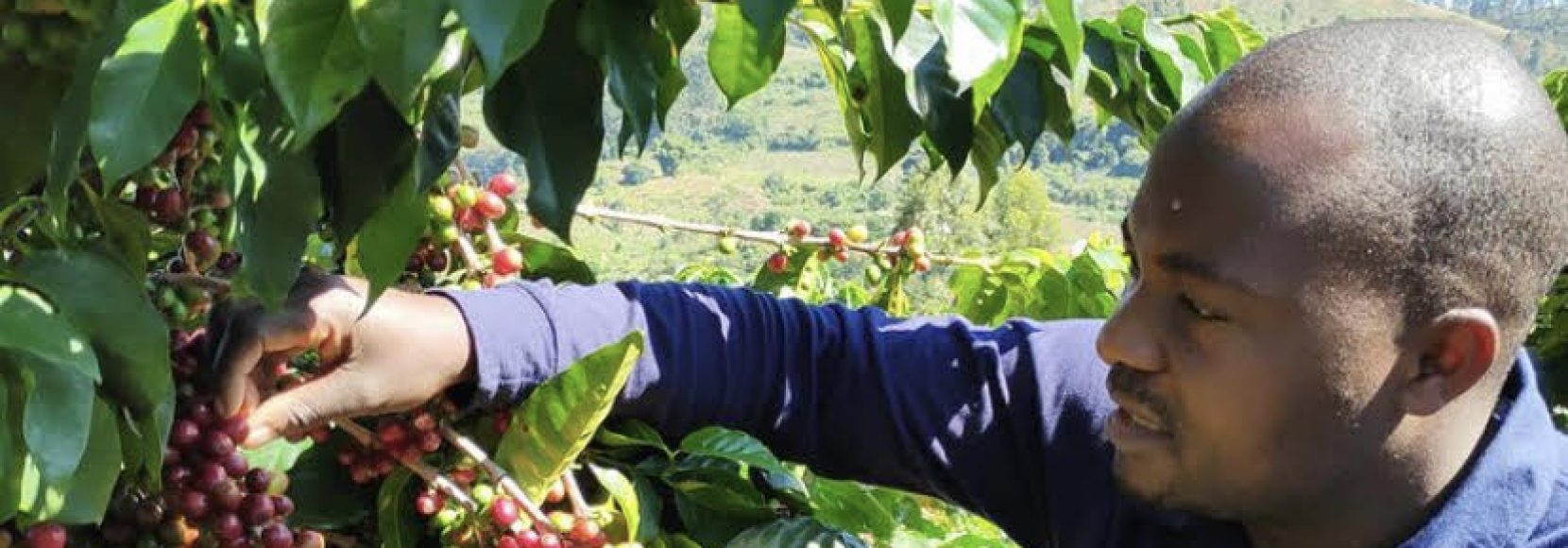
A Farmer Trainer in Zimbabwe Helps His Fellow Citizens Fight Climate Change
Smallholder farmers around the world are on the frontlines of climate change. Here’s how a TechnoServe trainer in Zimbabwe is helping them fight back.
Midway Bhunu, PhD, is the coffee program manager in Zimbabwe, where he leads TechnoServe’s partnership with Nespresso helping to rebuild the country’s once-vaunted coffee sector. A native of the same Manicaland province where TechnoServe supports Zimbabwe coffee farmers, Midway has worked in agriculture for nearly 20 years. Here, he shares how he has noticed his country’s climate changing over the years, and why he is committed to helping farmers respond.
Greater Heat, Greater Storms: How I’ve Seen Zimbabwe’s Climate Changing
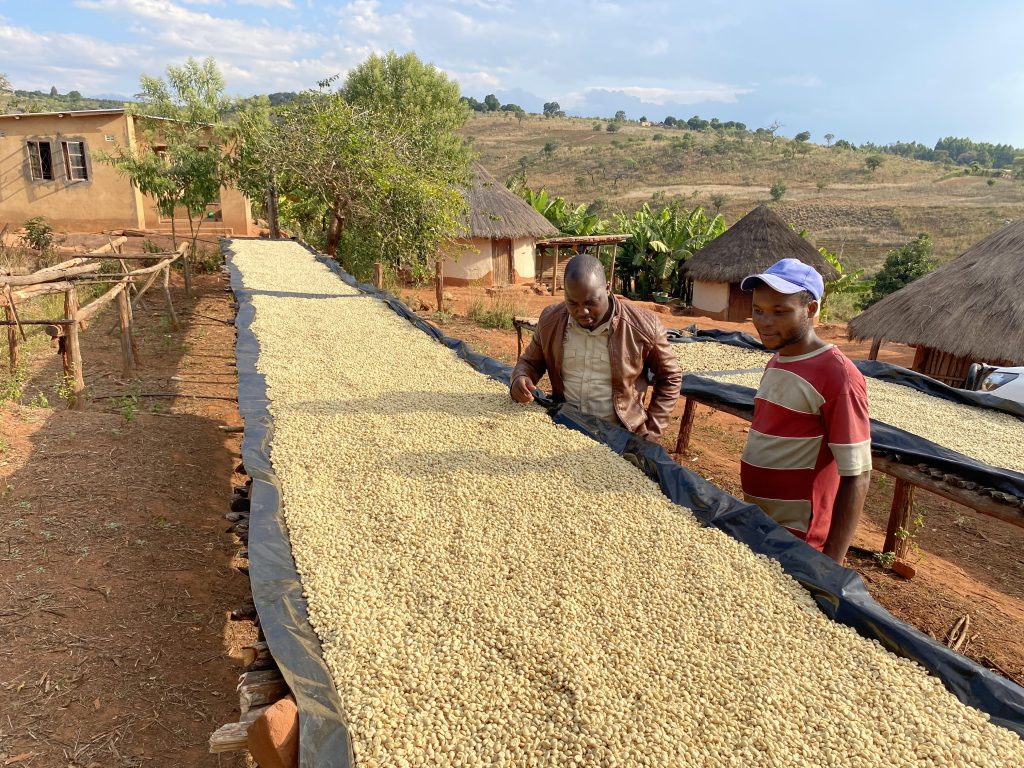
Since growing up in Zimbabwe, I have personally noticed significant changes in climate. The rain seasons have shifted. We used to receive effective rainfall mid-October, but nowadays we receive effective rainfall late November or mid-December. And there are now more cases of excess rainfall, which can lead to floods, soil erosion, and sometimes leaching of fertilizers.
I also notice that temperatures are rising. Some places that I used to know for having very cold winters are now warmer.
Long dry spells and droughts are becoming more frequent and intense. We used to predict a 10- year interval of drought, but recently the country experienced very low, below normal rainfall for three consecutive seasons. These droughts dried up some main water sources. There are some rivers I used to know as perennial that are now seasonal.
I am also now witnessing more frequent and severe cyclones in the country. In the last five years alone, we had Cyclone Dineo (2017), Cyclone Idai (2019) [one of the worst storms ever to hit Africa, killing more than 1,300 people, destroying over 400,000 acres of farmland, and causing billions of dollars in damage], Tropical Storm Chalane (2020), and Cyclone Eloise (2021).
How Zimbabwe’s Coffee Farmers Struggle with Climate Change
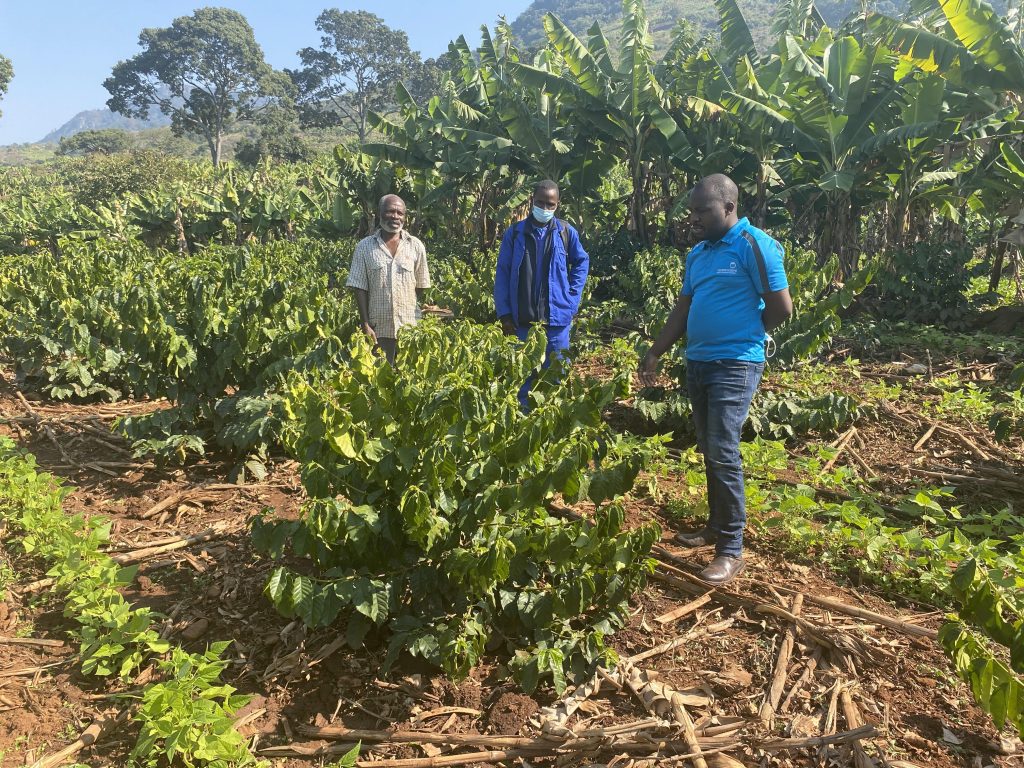
When I visit farmers, they tell me that they are facing numerous challenges related to climate change. Some of the challenges mentioned by farmers include heat waves with temperatures as high as 95-105 degrees Fahrenheit. Coffee farmers in the Honde Valley told me that coffee is now ripening some 40 days earlier than before. This shifts the whole coffee-growing calendar for these farmers.
With increased temperatures, farmers are seeing more Coffee Berry Borer [a beetle that causes significant damage to coffee beans]; and extreme temperatures during coffee flowering times can lead to low yields and low incomes for farmers.
It is important for farmers in Zimbabwe to have the skills to protect their crops, because losing them will mean losing their livelihoods.”
Droughts are also resulting in poor yields. The rains come late, or never come at all during the critical growth stages of crops like coffee, when water is needed most. The majority of the farmers do not have irrigation systems installed on their farms, and they rely entirely on rainfall–so they are severely affected by droughts and dry spells.
Cyclones and even stronger winds increasingly destroy farmers’ homesteads and crops. Farmers in the Chipinge and Chimanimani areas [districts in eastern Zimbabwe] told me that they lost about 20-30% of their crops due to Cycle Idai.
How We’re Helping Farmers Fight Back Against Climate Change
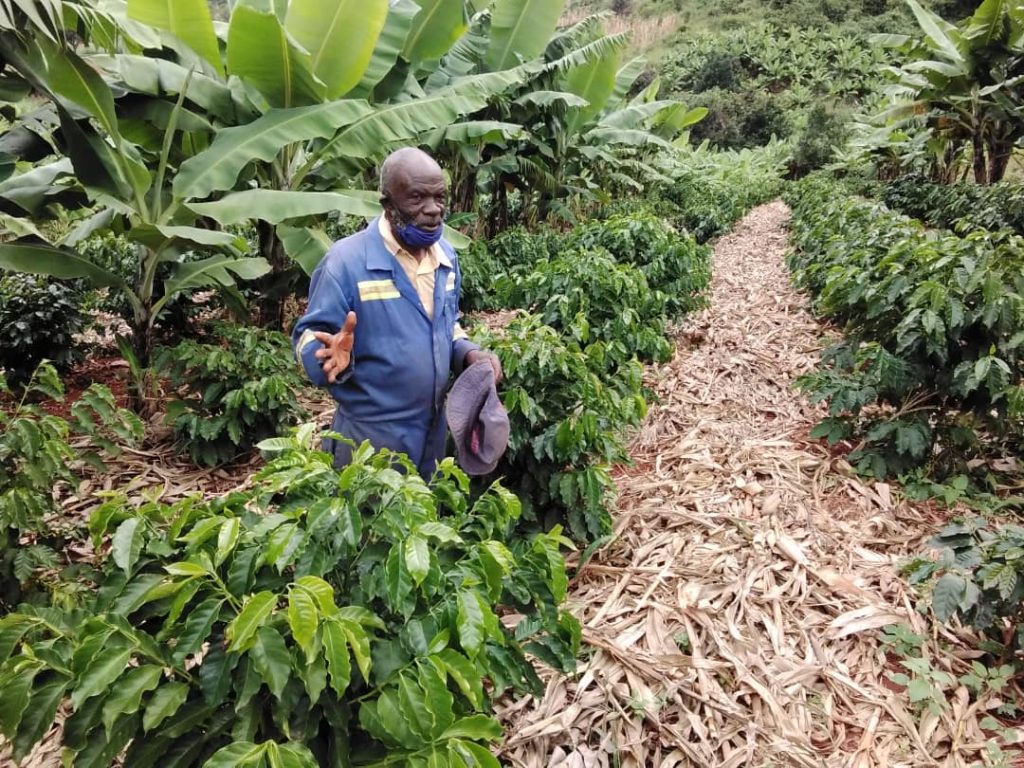
The climate-smart techniques we teach farmers have made tangible differences on their farms. We teach farmers to grow coffee in shade, supporting them to plant indigenous trees, and intercrop with banana trees. Arabica coffee evolved is highly adapted to shade–and shade trees are critically important in the fight against climate change, both decreasing soil and leaf temperatures and conserving soil moisture. Coffee grown under shade is not as susceptible to diseases and pests–and it’s better quality. The trees also improve the soil health and capture carbon from the air.
We also teach farmers techniques like mulching and composting. Farmers who adopt these practices testify that their coffee survives dry periods as the soil water retention capacity improves. Mulched farms also have fewer weeds, and this results in improved yields and good-quality coffee.
And we train farmers to fight pests that increasingly attack their crops due to climate change. For instance, insect traps are a highly effective and low-cost way to manage the Coffee Berry Borer pest.
Why I Do This Work
It is very important for farmers in Zimbabwe to learn how to protect their crops against climate change, because climate change is real. The farmers cannot stop climate change, so they need to adapt and protect their crops.
Agriculture is an important sector of the Zimbabwean economy, contributing between 15-18% to Gross Domestic Product. Over 70% of the population derives their livelihood from agriculture. So it is important for farmers in Zimbabwe to have the skills to protect their crops, because losing them will mean losing their livelihoods.
I feel very proud to play a role in helping Zimbabwe farmers become more resilient. I feel that by doing that work, I am contributing towards building a sustainable agriculture sector and a resilient farming community for my country.




